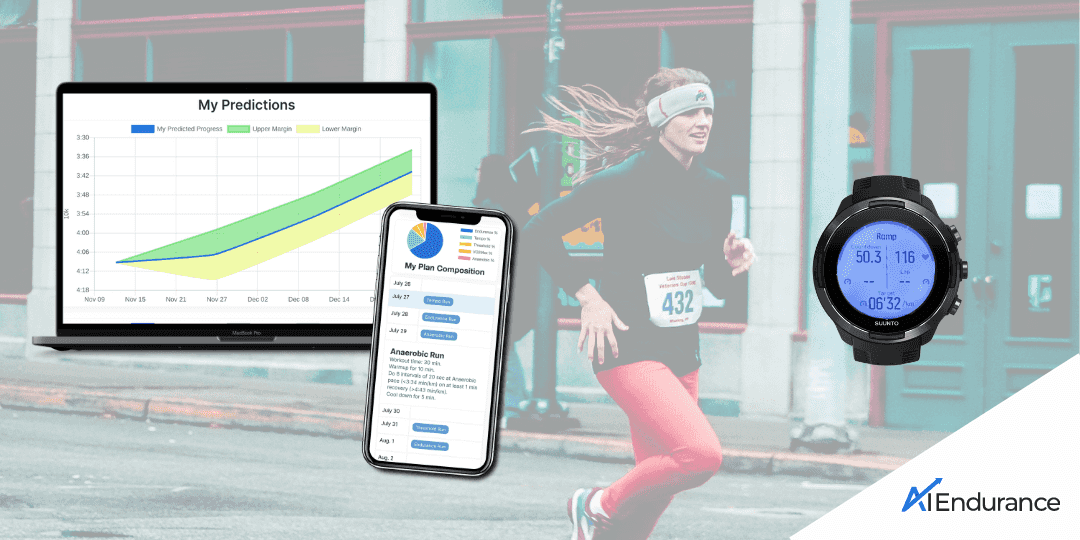
We show you in a few simple steps how to connect Suunto Guides with your AI Endurance account. You can get live workout instructions that are optimized to you by our AI. You can also easily determine your training zones and thresholds via a simple ramp test that utilizes your heart rate variability (HRV) data.
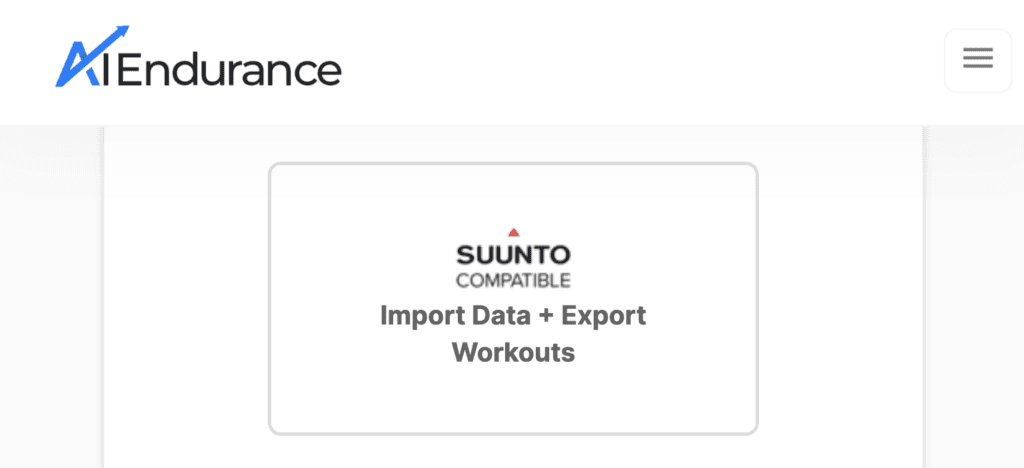
Synchronisation between AI Endurance and Suunto is automatic: whenever you request a new plan or modify your workouts, we will automatically forward these changes to Suunto Guides.
We import your Suunto history so our AI can learn which training has worked best for you in the past. AI Endurance predicts your future performance if you stick to your plan. We regularly assess your progress and if necessary let the AI re-calculate your optimal plan for your Suunto Guides.
Connect your Suunto to AI Endurance: Go to your Suunto App profile -> Partner Services -> Connect AI Endurance
We automatically update your zones and thresholds from your in-activity HRV data using DFA a1. Your Suunto watch automatically records your HRV data if you wear a high quality heart rate strap such as the Suunto Smart Sensor.
If you want to assess your zones and thresholds right away you can perform a simple ramp test in Suunto Guides with only a few steps:
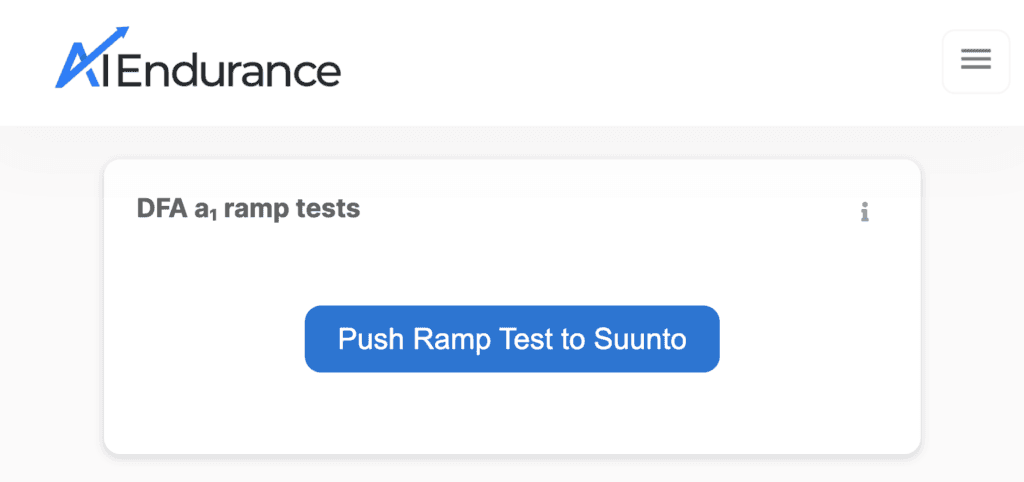
It is important for constructive training to have your training zones set correctly. AI Endurance takes out the guesswork by continuously monitoring your training zones. By utilizing the most recent research in HRV, we can set these parameters without the need of a physiology lab. You only need to wear a heart rate strap that records high quality HRV data.
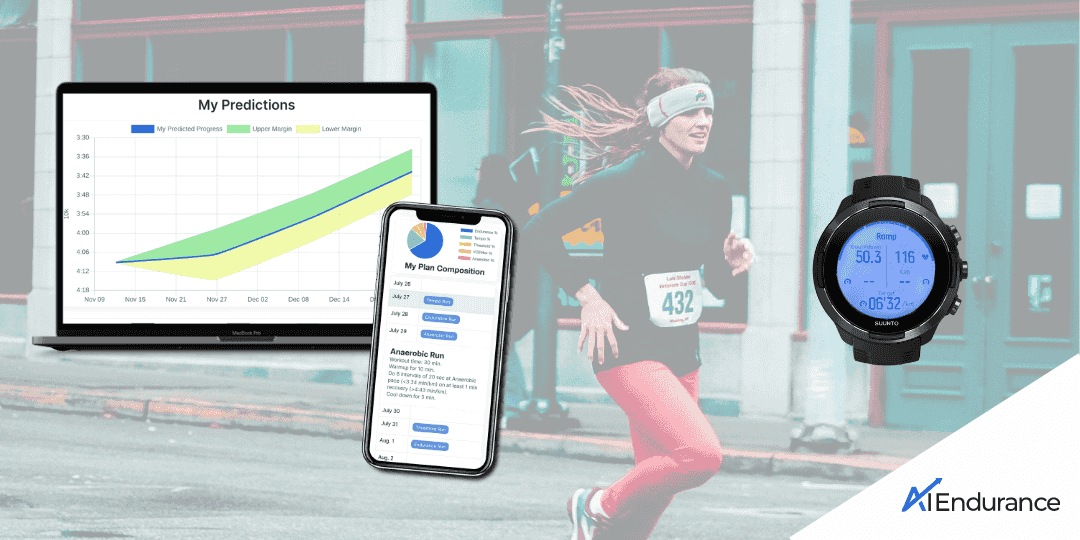
We show you in a few simple steps how to connect Suunto Guides with your AI Endurance account. You can get live workout instructions that are optimized to you by our AI. You can also easily determine your training zones and thresholds via a simple ramp test that utilizes your heart rate variability (HRV) data.
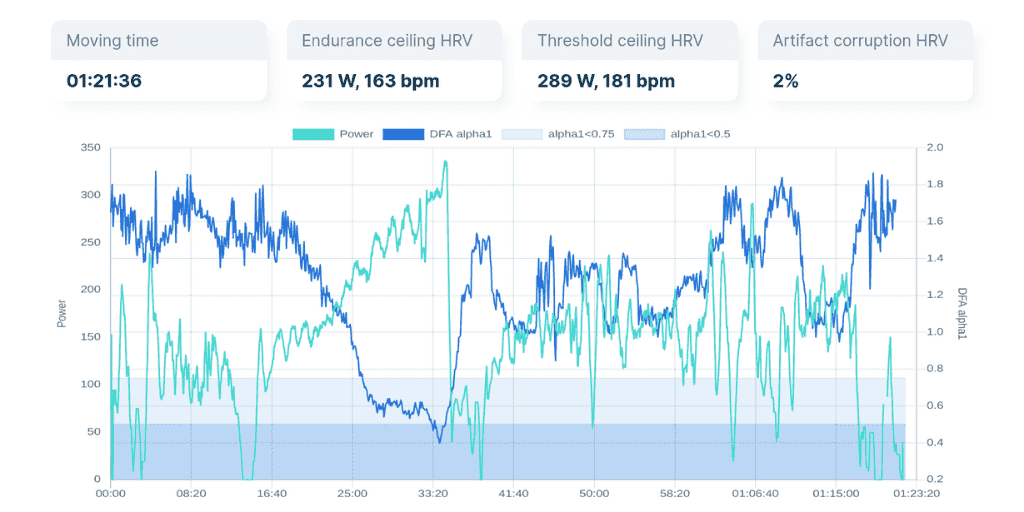
DFA alpha 1 is a heart rate variability (HRV) metric that allows tracking of the aerobic and anaerobic threshold. We explain the breakthrough potential of this new metric and how you can track your DFA alpha 1 thresholds with the AI Endurance app, Garmin and Zwift.
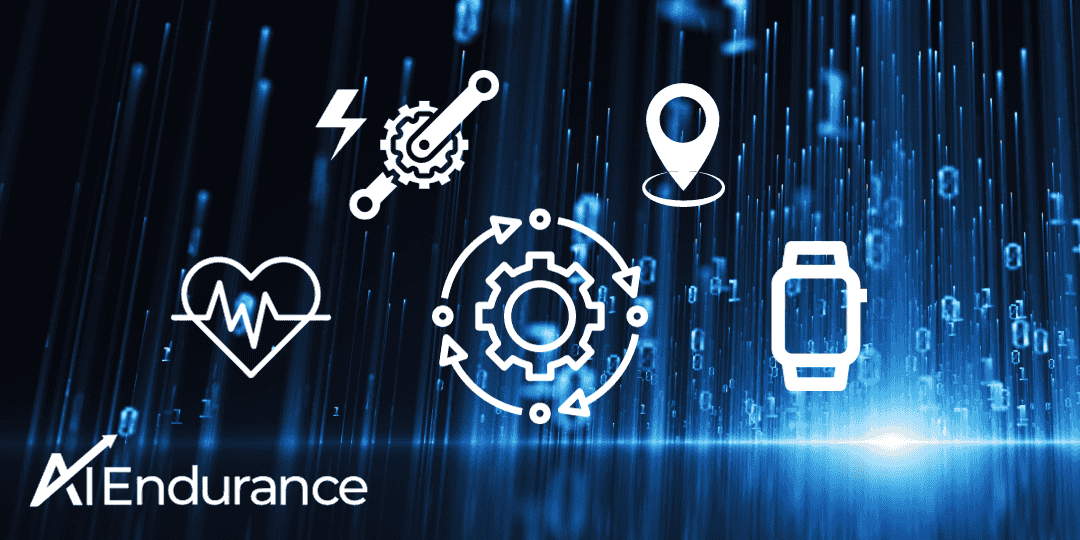
AI Endurance is a data-driven training platform. In order to maximally benefit from the training and have the program be most personalized to you, you'll want the best possible data to flow into the platform. Here's a few recommendations on how to achieve this.

by Stefano Andriolo, Markus Rummel and Iñigo Tolosa. We present a new real time feature of evaluating readiness to train based on in-activity heart rate variability (HRV) measurements during the warm up of your activity. You can use this feature in the newest version of the alphaHRV Garmin Connect IQ app at no additional cost.